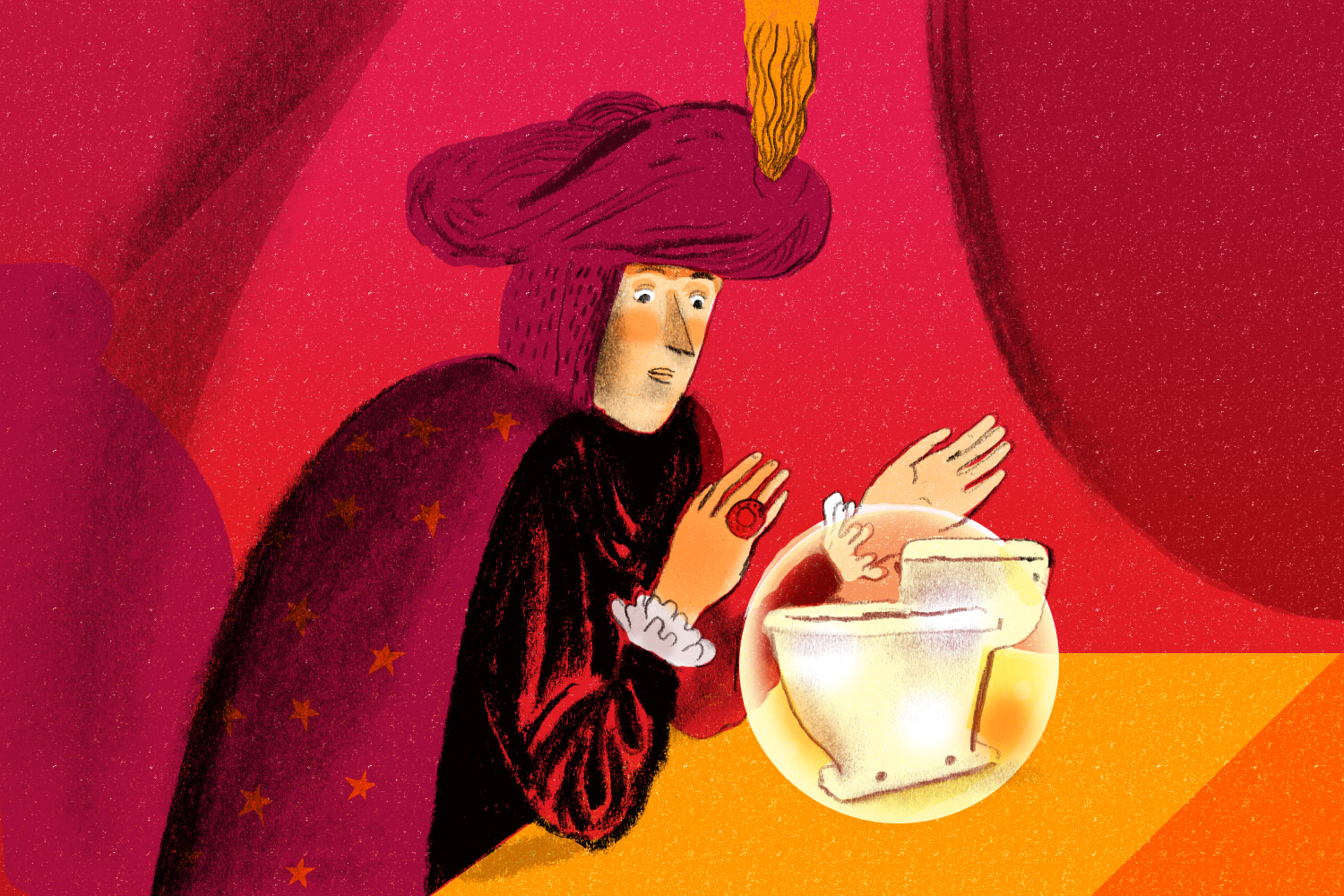
Of course, no one’s suggesting you stockpile your pee for further study. But taking a second or two to assess your urine can help you spot both minor and major health concerns.
As you probably know, the color of your urine is a pretty good gauge of your hydration levels, says Dr. Courtenay Moore, a urologist and surgeon with the Cleveland Clinic.
Moore says a pale straw color—almost clear, but not quite—is ideal. If your pee is crystal clear, you’re probably drinking too much H20, which can throw off your electrolyte balance in potentially harmful ways. “Your body can normally regulate its water and sodium levels pretty well,” Moore says. “But if your urine is clear and you’re peeing 20 times a day, you’re drinking water excessively.”
While almost any shade of yellow is considered “normal” when it comes to pee, Moore says darker hues indicate you need to drink more fluids, preferably water. Here’s why: Even slight dehydration can mess with your brain and body in some significant ways, says Dr. Harris Lieberman, a research psychologist with the U.S. Army.
Lieberman has looked into the ways dehydration can affect mood and cognitive function. “We found modest dehydration caused people’s moods to deteriorate,” he says. “People also felt more fatigued, and headaches were more common.” Also, cognitive performance suffers when you’re parched, especially among men. “Stuff like short-term memory, or the ability to pay attention to something for more than a minute or two, tended to drop off,” Lieberman says.
Water is so vital to your health that when you’re short on it, your brain seems to have problems attending to other matters. “Dehydration creates warning signals that the brain translates as a problem—and one you need to take care of promptly,” Lieberman says.
Hydration aside, Moore says she and other urologists worry most about red-colored urine. “It could just be that the person has eaten beets or rhubarb,” she says. “But it could also indicate bladder cancer or a kidney stone, even if there’s no accompanying pain.” If you do feel pain and your pee has a red hue, that’s likely a urinary tract infection, Moore says. In any case, if you ditch beets and the red remains, you need to see your doctor.
Brown or “tea-colored” urine often signals a kidney issue. “Or the person has eaten fava beans,” Moore says. Orange urine could indicate a liver or bile duct condition, while some medications or food dyes can turn your pee blue or green. Likewise, some supplements or multivitamins produce bright yellow urine, almost electric in color.
When it comes to the smell of your pee, “odor is not predictive of much,” Moore says. But extra bubbly or foamy pee could mean you have too much protein in your diet. If the foaming persists, see a doctor about potential kidney issues.
Finally, if you notice air pockets in your urine, almost like passing gas via your urethra, that’s trouble, Moore says. “It means some other organ—usually the colon—is communicating with your bladder.” Diverticulitis and other health issues could explain air in your pee. Regardless, you need to let your doctor know about it, Moore says.
More Must-Reads From TIME
- The 100 Most Influential People of 2024
- Coco Gauff Is Playing for Herself Now
- Scenes From Pro-Palestinian Encampments Across U.S. Universities
- 6 Compliments That Land Every Time
- If You're Dating Right Now , You're Brave: Column
- The AI That Could Heal a Divided Internet
- Fallout Is a Brilliant Model for the Future of Video Game Adaptations
- Want Weekly Recs on What to Watch, Read, and More? Sign Up for Worth Your Time
Contact us at letters@time.com